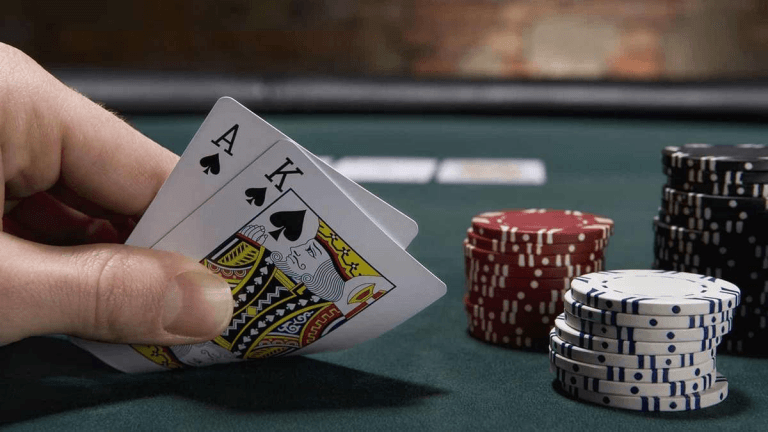The rise of BK8 has made competitive gaming a legitimate career path for many aspiring players. To succeed in the world of professional esports, players must not only be skilled at playing but also understand strategy, teamwork, communication, and mental discipline. A comprehensive esports training program should aim to develop these skills while focusing on the player’s growth both inside and outside the game. This article will break down the essential components of an effective esports curriculum that can prepare players for success at the highest level.
The Core of an Esports Curriculum
Understanding the Basics: What Is an Esports Curriculum?
An esports curriculum is a structured training program designed to teach aspiring players the skills necessary for competitive gaming. These programs go beyond simple gameplay mechanics, integrating physical fitness, mental resilience, and communication techniques to ensure well-rounded growth. A comprehensive curriculum ensures that players are equipped with the tools to perform at their best, both in-game and as professionals.
1. Game Mechanics and Technical Skills
In-Depth Knowledge of Game Mechanics
At the core of any esports training program is a deep understanding of the game’s mechanics. This includes everything from understanding character abilities, movement controls, and game-specific terminology to more advanced concepts like hitboxes, damage calculations, and cooldown management. Players need to be able to operate at peak efficiency in terms of technical execution.
Key Elements
- Mastering Controls and Keybindings: Knowing the optimal settings for faster responses.
- Understanding Maps and Objectives: Different games have different maps, and knowing them inside-out gives a strategic advantage.
2. Strategy and Game Sense
Developing Strategic Thinking
Esports is as much about strategy as it is about skill. Players must learn how to think on their feet, adapt to changing situations, and come up with in-game strategies that can outsmart opponents. An esports curriculum should include lessons in creating and adapting strategies based on real-time information, team composition, and the state of the game.
Key Elements
- Macro Strategy: Planning for long-term success, such as map control and resource management.
- Micro Strategy: Focus on individual actions and decisions, including positioning, timing, and specific team roles.
3. Teamwork and Communication Skills
Building Strong Team Dynamics
Competitive gaming is rarely a solo effort. Most esports games are team-based, requiring constant communication and collaboration. A successful esports player must be able to effectively communicate with their teammates, whether it’s to share information or to coordinate strategies. A curriculum should emphasize the importance of clear communication, including callouts, positive reinforcement, and maintaining team morale.
Key Elements
- Voice Communication: Efficient and clear verbal communication during a match.
- Non-verbal Communication: Recognizing team signals, body language, and facial expressions.
- Role Clarity: Understanding and executing each team member’s specific role.
4. Mental and Psychological Training
The Importance of Mental Resilience
Esports requires not just physical skill but also mental fortitude. Players need to cope with high-pressure situations, deal with losses, and maintain focus during long gaming sessions. Psychological training is crucial to building resilience, stress management, and confidence in players.
Key Elements
- Focus and Concentration: Training the mind to remain focused during high-stakes moments.
- Stress Management: Techniques such as meditation or breathing exercises to stay calm under pressure.
- Emotional Control: Learning to manage frustration, anger, and nerves.
5. Physical Fitness and Health
Staying Physically Fit for Peak Performance
It may come as a surprise to some, but physical fitness plays a critical role in esports performance. While gaming may seem sedentary, it requires intense hand-eye coordination, reflexes, and mental acuity. An effective esports curriculum should incorporate physical exercises, stretching routines, and habits that promote overall health, preventing burnout and improving gameplay longevity.
Key Elements
- Hand-Eye Coordination Exercises: Practices that improve reaction time.
- Posture and Ergonomics: Correct posture for gaming to avoid long-term injuries.
- General Fitness: Exercises to improve endurance and stamina, which can enhance focus during long gaming sessions.
6. Analysis and Review
The Importance of Reviewing Gameplay
To continuously improve, players must analyze their own performance. This includes reviewing game footage, looking for mistakes, and understanding areas for improvement. An esports curriculum should integrate sessions where players can review matches and break down gameplay, both individually and with a coach.
Key Elements
- Self-Review: Watching replays to spot mistakes and areas of improvement.
- Coach Review: Working with a coach to analyze mistakes and develop solutions.
- Opponent Review: Studying the opposition’s strengths and weaknesses.
7. Adaptability and Problem-Solving
Preparing for Dynamic Game Scenarios
No two esports matches are the same. Situations can change rapidly, and players must be able to think on their feet and adapt their strategies in real-time. Training programs should encourage adaptability by putting players in situations that require them to problem-solve and adjust to their opponents’ strategies.
Key Elements
- Adaptation Drills: Practicing specific scenarios where players have to react quickly and change their strategies.
- Decision-Making: Training players to make critical decisions with limited information.
- Innovation: Encouraging creative problem-solving in the heat of battle.
8. Time Management and Discipline
Balancing Practice and Personal Life
Esports training can be intense, and managing one’s time effectively is vital. Players must balance practice with rest, nutrition, and personal life. Time management skills are essential for maintaining a healthy lifestyle while still working toward excellence in gaming.
Key Elements
- Training Schedules: Structuring practice time to maximize learning while avoiding burnout.
- Recovery Time: Ensuring adequate rest and relaxation for physical and mental recovery.
- Balance: Maintaining a healthy balance between gaming and personal life.
9. Esports Etiquette and Professionalism
Cultivating a Positive Esports Culture
Esports is a rapidly growing industry, and professionalism is becoming increasingly important. A solid esports curriculum should educate players on the importance of maintaining a good reputation, treating others with respect, and acting as positive role models within the community.
Key Elements
- Sportsmanship: Promoting fair play, respect for opponents, and humility in victory or defeat.
- Branding and Public Image: Teaching players to manage their online presence, social media, and personal brand.
- Team Etiquette: Encouraging positive interactions with teammates and coaches.
10. Coaching and Mentorship
The Role of Coaches in Esports Development
Esports coaches play a pivotal role in a player’s development. They provide guidance, teach new techniques, help players with strategy, and offer emotional support. An esports curriculum should prioritize coaching sessions, where coaches can impart knowledge and mentor players to improve their performance.
Key Elements
- One-on-One Coaching: Personalized training sessions that focus on individual needs.
- Group Training: Collaborative practice sessions that emphasize team dynamics.
- Mentorship: Experienced players guiding newer talent.
11. The Business of Esports
Understanding the Esports Industry
A well-rounded esports player should also understand the business side of the industry, from sponsorships and contracts to streaming and merchandising. Training programs should include basic knowledge of the esports ecosystem, helping players navigate their careers beyond just the game itself.
Key Elements
- Sponsorships: How to secure and manage brand partnerships.
- Contracts and Negotiations: Understanding contracts and how to negotiate effectively.
- Streaming and Content Creation: Leveraging platforms like Twitch and YouTube for additional income and branding.
12. Networking and Community Engagement
Building Relationships in Esports
Networking is essential for career growth in esports. Players should learn how to interact with others in the esports community, including fans, sponsors, and other professionals. An esports curriculum should teach players how to build relationships that can benefit their careers.
Key Elements
- Community Engagement: Interacting with fans and followers on social media.
- Networking Events: Participating in tournaments, conventions, and other esports-related events.
- Building a Personal Brand: Leveraging online platforms for self-promotion.
13. Staying Up-to-Date with Industry Trends
Evolving with the Esports Landscape
The esports landscape is constantly changing, with new games, tournaments, and trends emerging regularly. It’s important for players to stay informed and adapt to the latest industry developments. Training programs should include lessons on how to stay current and competitive in a rapidly evolving environment.
Key Elements
- Game Updates: Staying updated on game patches and changes.
- Industry News: Following trends, new technologies, and emerging esports titles.
- Continuous Learning: Attending workshops, webinars, and online courses to improve.
14. Long-Term Career Development
Preparing for a Sustainable Career in Esports
A successful esports career doesn’t always mean playing professionally forever. Training programs should prepare players for life beyond their playing days, including coaching, content creation, and other esports-related careers.
Key Elements
- Post-Playing Careers: Guidance on transitioning into coaching, analysis, or broadcasting.
- Life After Esports: Preparing for education or other career options once a player’s esports career winds down.
- Financial Planning: Managing income and preparing for long-term stability.
Conclusion: Creating the Ultimate Esports Training Program
An BK8 curriculum is not just about playing better; it’s about building a well-rounded player capable of excelling in various aspects of competitive gaming. From mastering technical skills to understanding strategy, mental resilience, and the business of esports, a comprehensive training program provides aspiring players with the tools they need to succeed. By fostering an environment of growth, discipline, and professionalism, esports programs can create the next generation of champions.




